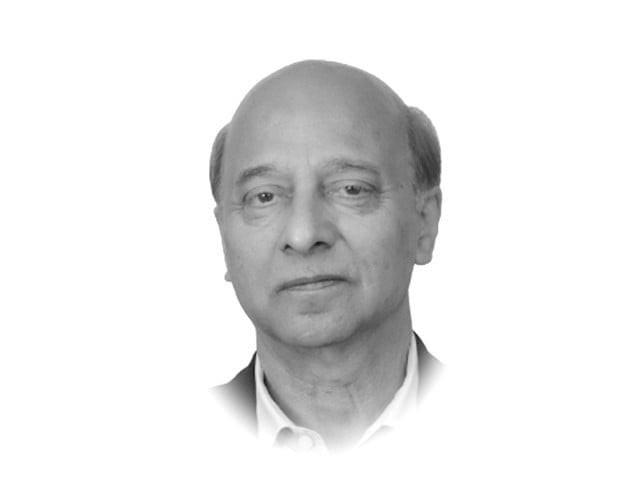Why 'Canada not for sale'?
Carney made the unambiguous statement about his country on the back of a fresh mandate

"As you know from real estate, there are some places that are never for sale having met with the owners of Canada over the course of the campaign it's not for sale. Won't be for sale, ever — never, never, never, never."
Why begin this column with a provocative headline and a blunt statement?
Actually, the raging India-Pakistan stand-off prompted me to centralise this point — only after reading the statement above. It came from Canadian Prime Minister Mark Carney during his first meeting with US President Donlad Trump at White House on May 7.
Only a person of Carney's credentials and calibre — committed nationalist, loaded with knowledge and with a belief in public mandate (owners of Canada) — could have been this emphatic when talking to Trump, whose propensity to project power and bully his interlocutors is meanwhile a source of concern even for the European allies of the United States.
In fact Trump's repeated assertion that Canada assimilate in the USA as 51st state served as the single largest factor to unite Canadians across the board. The general elections in April also manifest the rejection by the vast majority of Canadians of Trump's idea of acquiring Canada.
Carney served as the eighth governor of both Bank of Canada (2008-2013) and Bank of England (2013-2020). He is remembered as a person who guided British central bank's response to Brexit as well as the COVID pandemic.
Even before heading to the White House for his first meeting, the Canadian PM had — publicly and repeatedly — refused to be cowed down with Trump's repeated statements on Canada. Even the new opposition leader, Pierre Poilievre, threw his weight behind Carney, vowing to work with him and leaders of other parties in "defending Canada's interests" and "protecting our sovereignty".
"We will always put Canada first as we stare down tariffs and other irresponsible threats from President Trump," Poilievre said, displaying an unmistakable national pride and self-belief.
No surprise, Carney took Trump head-on to reiterate his nation's position.
How could he do it? Where did he draw the strength and courage from to represent the entire Canada before the roaring US president?
Carney made the unambiguous statement about his country on the back of a fresh mandate, and support from the opposition party and a consensus on the status of their country.
"Canadian National Unity" was the message to Trump.
Now, how does it relate to Pakistan's latest bout of tensions with India? Why did India embark on a path of almost war declaration of war?
There, belligerence and calls for punitive action against Pakistan from BJP and its allies in the backdrop of the April 22 Pahalgam terrorist attack was a given. But even people like Shashi Tharoor, a moderate, well-read Congress MP, advocated "hard and smart response to Pakistan". Almost all political parties rallied behind Prime Minister Narendra Modi, without an iota of aspersion on his legitimacy, an absolute consensus on how to deal with Pakistan.
No surprise either that within minutes of the tragic incident they dumped the blame on Pakistan, spoke of three terrorists but ended up targeting nine different facilities across Kashmir and Pakistan, claiming over 80 "terrorists" had been killed on May 7.
National consensus there encouraged the Indian civil and military leadership to establish a neo-normal; straight hits at Bahawalpur and Muridke (Pakistan territory), followed by dozens of drones that flew as far as the Pindi Cricket Stadium, Race Course Ground and two locations in Karachi — a brazen violation of our sovereignty. Most were obviously brought down through jamming of the Harop drones' communication.
Most Pakistanis wondered as to how this neo-normal might evolve, and whether the targeted women and children residing in these locations qualified to be terrorists?
Pakistanis across the board also sounded united in defence of their country for the simple reason that the interests of the country are always non-negotiable for the citizens and their representatives. Nothing is dearer to us all than the brand PAKISTAN as our identity. But was the apparent enthusiasm flow just from the love for the country or did the masses unite behind the government too? Did they heed the government which lacks legitimacy and is therefore devoid of the conviction that the Canadian and Indian prime ministers enjoy?
The situation called for a course-correction, for healing the wounds inflicted in the last couple of years. In India, the Supreme Court returned an application that called for investigation to fix the responsibility for the Pahalgam terror incident. Here, saying such an action would "demoralise the security forces in the current circumstances".
Here, on the day of Indian attacks on targets inside Pakistan, the Supreme Court legitimised the trial of civilians in military courts at a time when messaging to all and sundry should have been one of reconciliation and compassion. In these testing times, when India — taking cue from Israel's brutal and unquestioned assault on Gaza and Palestinians at large — embarked on a neo-normal and brazenly violated Pakistan's territorial sovereignty, we needed national unity based on a sense of justice, inclusion and equity. It was, nevertheless missing, in the noise of conflicting and shallow narratives coming from those in power.
















COMMENTS
Comments are moderated and generally will be posted if they are on-topic and not abusive.
For more information, please see our Comments FAQ